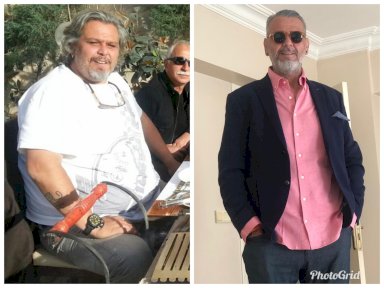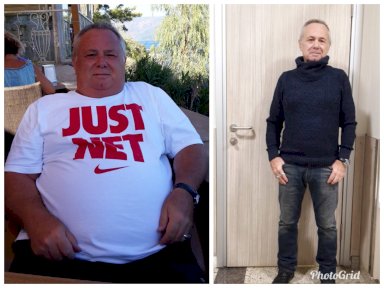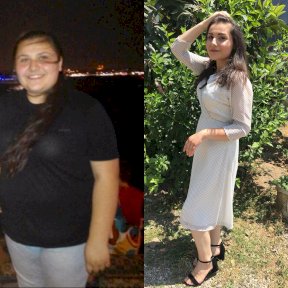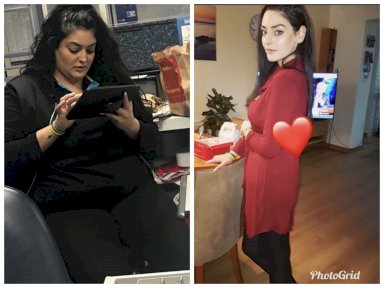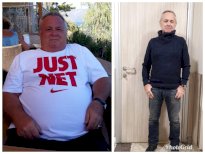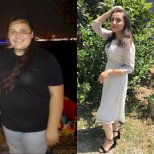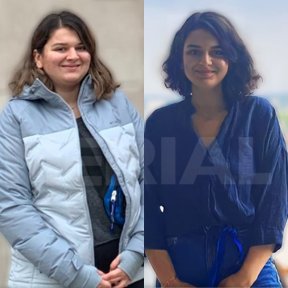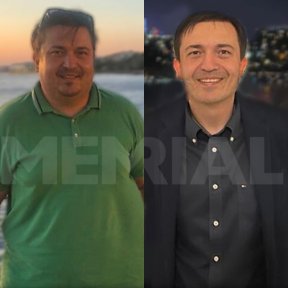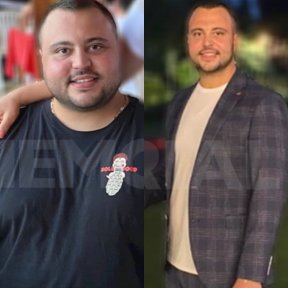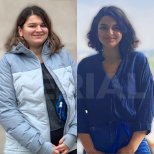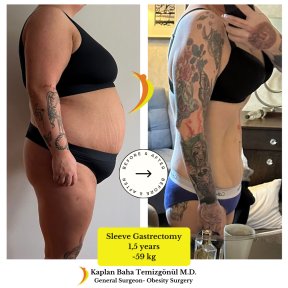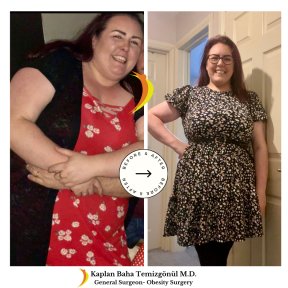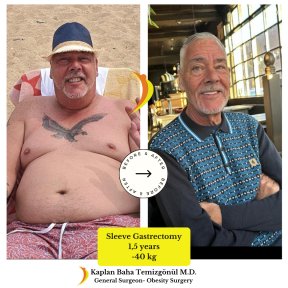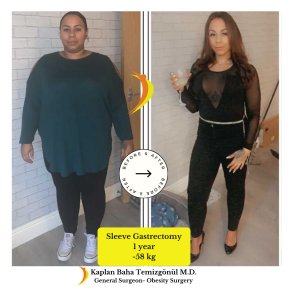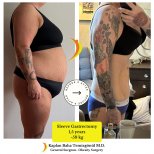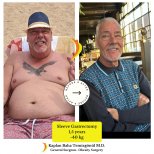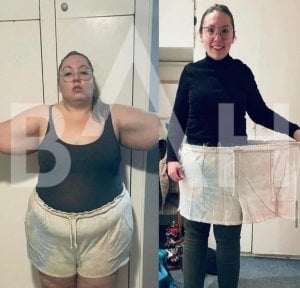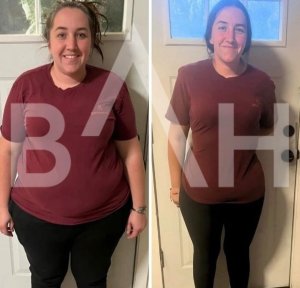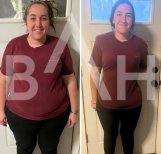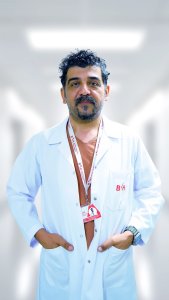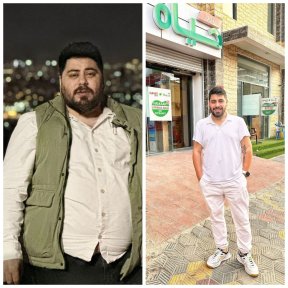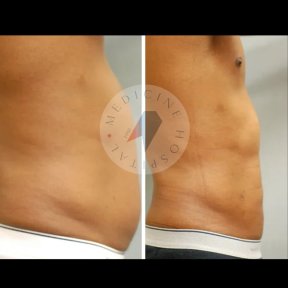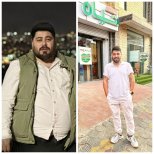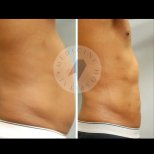Assoc. Prof. Dr. Burcin Batman telah melakukan lebih dari 1.000 prosedur bariatrik dengan keahlian khusus dalam bedah penurunan berat badan. Paket lengkap gastric sleeve berbiaya sekitar €2.900 – mencakup operasi, rawat inap 2 malam, menginap di hotel 4 malam, transportasi, dan dukungan ahli gizi selama 1 tahun. Rumah Sakit Hisar yang terakreditasi JCI menggunakan sistem keamanan obat PYXIS dan memiliki penilaian pasien 4,6/5. Dr. Batman merupakan anggota aktif IFSO dan perhimpunan bedah obesitas Turki.
Bagaimana cara mendapatkan operasi lengan lambung terbaik di Turki?
Klinik terkemuka di Turki seperti Rumah Sakit Lokman Hekim Istanbul (4,8/5), Klinik Lotus Bariatrics (5,0/5), dan Rumah Sakit Intercontinental Hisar (4,6/5, terakreditasi JCI) memberikan bantuan medis untuk pasien internasional dan memenuhi standar kesehatan internasional yang ketat. Lebih dari 30 rumah sakit di Turki memegang standar akreditasi Joint Commission International, memastikan mereka mematuhi protokol keselamatan pasien global. Namun, untuk mendapatkan pengalaman terbaik, Anda harus:
- Memeriksa reputasi klinik: cari tahu apakah mereka memiliki sertifikasi dan lisensi yang tepat.
- Periksa umpan balik pasien. Pendapat pelanggan nyata dari mereka yang telah mengalami prosedur tersebut memberikan wawasan berharga ke dalam pusat medis.
- Bandingkan harga. Hindari memilih klinik yang menawarkan harga sangat rendah untuk operasi. Ini mungkin menunjukkan bahwa pusat medis tidak memiliki pengalaman yang memadai untuk melakukan operasi. Namun, harga yang lebih rendah dapat tersedia melalui penawaran terbatas waktu yang disediakan oleh fasilitas yang memiliki reputasi baik.
Seorang pasien dari Inggris Raya yang menerima perawatan di Rumah Sakit Lokman Hekim Istanbul berbagi: "Klinik yang luar biasa. Spesialis yang sangat baik, sangat memperhatikan detail. Dokter sangat ramah dan profesional. Semuanya berjalan cepat dan tanpa komplikasi."
Tingkat Keberhasilan Klinis dan Hasil Jangka Panjang
Operasi lengan lambung menunjukkan hasil klinis yang kuat berdasarkan penelitian yang luas. Studi klinis tentang hasil jangka panjang lengan lambung menemukan bahwa 61,5% pasien mempertahankan penurunan berat badan yang sukses (≥50% penurunan berat badan berlebih) pada titik sepuluh tahun. Prosedur ini biasanya menghasilkan penurunan berat badan berlebih 60–80% dalam 18 bulan pertama.
Namun, pasien harus memahami bahwa 33,75% mungkin memerlukan operasi revisi dalam 10 tahun, seringkali karena kenaikan berat badan kembali atau komplikasi seperti GERD, yang berkembang pada sekitar 40% pasien setelah operasi. Tingkat keberhasilan tertinggi terjadi pada pasien di bawah 50 tahun dengan sedikit komorbiditas yang ada sebelumnya.
Seorang pasien dari Amerika Serikat yang dirawat di Rumah Sakit Intercontinental Hisar melaporkan: "Rumah sakit sebanding dengan rumah sakit swasta terbaik di Spanyol. Pengalaman/profesionalisme dokter tidak tertandingi. Perawatan pasca operasi/lanjutan dihargai."
Berapa biaya operasi lengan lambung termasuk semua di Turki?
Keuntungan utama mendapatkan lengan lambung di Turki adalah dengan membayar operasi, Anda juga akan menerima daftar layanan tambahan tanpa biaya tambahan. Ini berarti akomodasi, transfer, dan layanan penerjemahan sudah termasuk dalam harga.
Biasanya, biaya gastrektomi termasuk semuanya di Turki berkisar antara $2.800–$6.000 menurut data harga terverifikasi Bookimed. Untuk harga ini, Anda akan menerima prosedur bariatrik dan serangkaian fasilitas lengkap yang disebutkan di atas.
Perbandingan Biaya Rinci
- Turki: $2.800–$6.000 (paket termasuk semua)
- Inggris Raya: $13.000–$19.700
- Amerika Serikat: $9.000–$27.000
- Jerman: $5.800–$17.400)
- Australia: $15.700–$19.600)
Ini mewakili penghematan 60–75% dibandingkan dengan negara-negara Barat. Harga kompetitif Turki disebabkan oleh biaya operasional yang lebih rendah sambil mempertahankan standar keselamatan internasional melalui fasilitas yang terakreditasi JCI.
Kirimkan permintaan untuk memesan penawaran lengan lambung yang disediakan oleh mitra Bookimed.
Apa saja yang termasuk dalam paket operasi lengan lambung di Turki?
Klinik Turki bekerja sama dengan hotel lokal, menyediakan akomodasi bagi pelanggan mereka secara gratis atau dengan diskon signifikan.
Penjemputan di bandara dan layanan penerjemahan dalam bahasa Anda juga biasanya gratis. Secara ringkas, harga paket gastrektomi meliputi:
- Prosedur lengan lambung itu sendiri
- Biaya ahli bedah
- Biaya ahli anestesi
- Anestesi
- Perawatan lanjutan
- Jumlah malam yang diperlukan di hotel
- Transfer bandara-klinik-bandara
- Pendamping penerjemah
Seorang pasien dari Polandia yang dirawat di Rumah Sakit Lokman Hekim Istanbul memuji: "Koordinator yang luar biasa dan perawatan yang penuh perhatian; bangsal besar dan lengkap."
Prosedur Lengan Lambung: Bagaimana Cara Kerjanya
Operasi lengan lambung (gastrektomi lengan laparoskopik) melibatkan pengangkatan sekitar 75–80% dari lambung dengan menggunakan stapler bedah khusus, menciptakan kantung berbentuk lengan yang sempit dengan kapasitas 100–150ml. Prosedur ini dilakukan melalui 4–5 sayatan kecil, biasanya memakan waktu 1–2 jam untuk diselesaikan.
Pembedahan bekerja melalui berbagai mekanisme:
- Pembatasan fisik: Lambung yang lebih kecil menampung lebih sedikit makanan, menciptakan rasa kenyang lebih awal
- Perubahan hormonal: Menghilangkan fundus menghilangkan 80–85% produksi ghrelin (hormon lapar)
- Pengosongan lebih cepat: Makanan bergerak lebih cepat melalui sistem pencernaan
Kombinasi ini menghasilkan pembatasan mekanik dan perubahan hormonal yang mendorong penurunan berat badan berkelanjutan tanpa mempengaruhi penyerapan nutrisi seperti prosedur bariatrik lainnya.
Jadwal Pemulihan dan Apa yang Diharapkan
Rawat Inap: 1–2 hari (Protokol Pemulihan Ditingkatkan dapat memungkinkan pemulangan pada hari yang sama)
- Minggu 1: Diet cair saja, jalan ringan dianjurkan, nyeri dikelola dengan obat
- Minggu 2–3: Kembali ke pekerjaan meja mungkin, transisi ke makanan lembut
- Minggu 4–6: Makanan lunak diperkenalkan, sebagian besar kegiatan harian dapat dilanjutkan
- 6–8 minggu: Pemulihan penuh untuk sebagian besar pasien, kembali ke aktivitas berat
Milestone jangka panjang:
- 3 bulan: Penurunan berat badan berlebih 30–40% adalah umum
- 6 bulan: Penurunan berat badan berlebih 50–60%
- 12–18 bulan: Penurunan berat badan maksimum dicapai (penurunan berat badan berlebih 60–80%)
Pasien biasanya kembali bekerja dalam waktu 2–3 minggu untuk pekerjaan meja, 3–4 minggu untuk pekerjaan fisik.
Bagaimana cara memilih klinik terbaik untuk operasi lengan lambung di Turki?
Ketika berharap untuk menerima pengalaman bedah terbaik, Anda harus przede memilih klinik yang mematuhi semua standar medis. Ikuti tips ini untuk menemukan pusat medis untuk kasus Anda:
- Jelajahi klinik Turki yang berspesialisasi dalam operasi penurunan berat badan
- Pilih fasilitas dengan lisensi dan sertifikasi yang tepat untuk memastikan layanan medis berkualitas tinggi
- Periksa ulasan pasien untuk menilai tingkat kepuasan, hasil yang dicapai, dan mengidentifikasi ahli bedah bariatrik yang sangat terampil
Anda juga dapat menghubungi penulis ulasan untuk mendapatkan lebih banyak informasi tentang klinik dan proses pembedahan.
Alih-alih menjalani langkah-langkah ini secara mandiri, Anda dapat meminta bantuan dari Bookimed. Koordinator kami akan menemukan klinik lengan lambung terbaik menurut preferensi Anda di antara lebih dari 420 pusat mitra kami di Turki, termasuk fasilitas dengan peringkat tinggi seperti Klinik Lotus Bariatrics (5,0/5), Rumah Sakit Lokman Hekim Istanbul (4,8/5), dan Rumah Sakit Memorial Şişli (4,7/5, terakreditasi JCI).
Apa keunggulan dari gastroplasti lengan endoskopi di Turki?
Gastroplasti lengan endoskopi adalah prosedur yang minimal invasif untuk penurunan berat badan yang dilakukan dengan perangkat jahitan khusus. Operasi ini biasanya berlangsung sekitar 1–1,5 jam.
Klinik Turki menyediakan intervensi konservatif ini dengan manfaat signifikan bagi pasien:
- Paket termasuk semua. Klinik operasi bariatrik di Turki menyediakan biaya komprehensif yang mencakup operasi, tinggal di rumah sakit selama 2–3 hari, transfer bandara, dan akomodasi hotel. Turki menjadi tuan rumah bagi 2 juta wisatawan medis pada tahun 2024, menghasilkan lebih dari $10 miliar pendapatan, dengan perawatan yang biayanya 50–70% lebih murah dibandingkan alternatif di AS dan Eropa.
- Ahli bedah terlatih fellowship. Ahli bedah bariatrik terkemuka seperti Dr. Burcin Batman (1.000+ prosedur di Rumah Sakit Intercontinental Hisar) dan Dr. Kaplan Baha Temizgonul (Klinik Lotus Bariatrics) melakukan 300–500 prosedur setiap tahun dibandingkan dengan 50–150 untuk ahli bedah Barat pada umumnya, dengan banyak yang memegang keanggotaan IFSO dan ASMBS.
Seorang pasien dari Spanyol yang memilih Klinik Lotus Bariatrics mencatat: "Proses efisien, penjadwalan cepat, bantuan personal, perencanaan jelas, staf rumah sakit yang hebat."
Profil Keamanan dan Potensi Komplikasi
Operasi lengan lambung memiliki profil keamanan yang baik dengan tinjauan komprehensif tentang komplikasi gastrektomi lengan menunjukkan tingkat komplikasi keseluruhan 2,12%. Tingkat kematian sangat rendah pada 0,18–0,27%.
Potensi komplikasi termasuk:
- Kebocoran garis staple: 1–3% dari operasi primer (1,2% di pusat spesialis)
- Perkembangan GERD: 40–47% pasien dapat mengalami refluks asam
- Kekurangan gizi: Hingga 45% mengalami kekurangan zat besi, hampir semua memerlukan suplementasi vitamin D
- Infeksi luka: Kurang dari 1% dalam prosedur minimal invasif
Komplikasi sebagian besar dapat dikelola dengan perawatan medis yang tepat, dan rasio risiko-manfaat sangat mendukung operasi untuk kandidat yang memenuhi syarat. Memilih fasilitas yang terakreditasi JCI dan ahli bedah yang berpengalaman secara signifikan mengurangi risiko ini.
Gejala darurat yang memerlukan perhatian medis segera:
- Nyeri perut yang parah
- Muntah terus-menerus
- Demam tinggi
- Sesak napas
- Detak jantung cepat
Kontraindikasi termasuk penyakit jantung atau paru-paru yang parah, penyalahgunaan zat aktif, dan ketidakmampuan untuk komitmen pada tindak lanjut seumur hidup.
Siapa ahli bedah lengan lambung terbaik di Turki?
Di halaman ini, Anda dapat menemukan daftar ahli bedah bariatrik terkemuka termasuk Dr. Burcin Batman (Rumah Sakit Intercontinental Hisar, 1.000+ prosedur), Dr. Kaplan Baha Temizgonul (Klinik Lotus Bariatrics), dan Dr. Assoc Prof Dr Guner Cakmak (Rumah Sakit Lokman Hekim Istanbul) - semuanya diverifikasi melalui penilaian kualitas Bookimed. Anda dapat memilih salah satu dari dokter ini, memesan konsultasi online, dan menjadwalkan prosedur penurunan berat badan Anda.
Seorang pasien dari Ukraina berbagi tentang pengalaman mereka: "Senang dengan operasi, pemulihan cepat, dokter yang baik dan berpengalaman."
